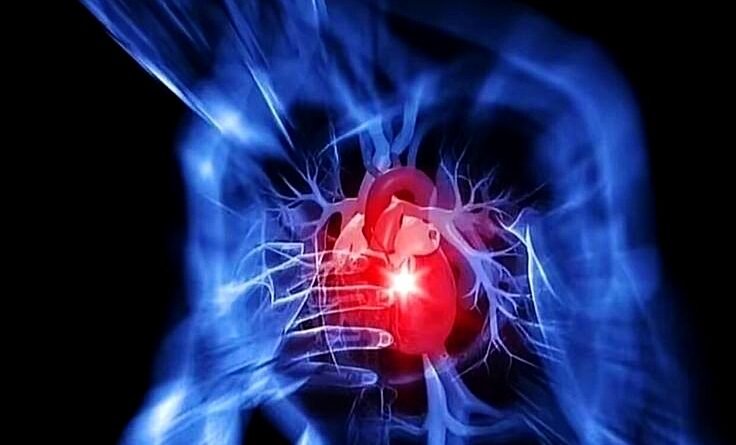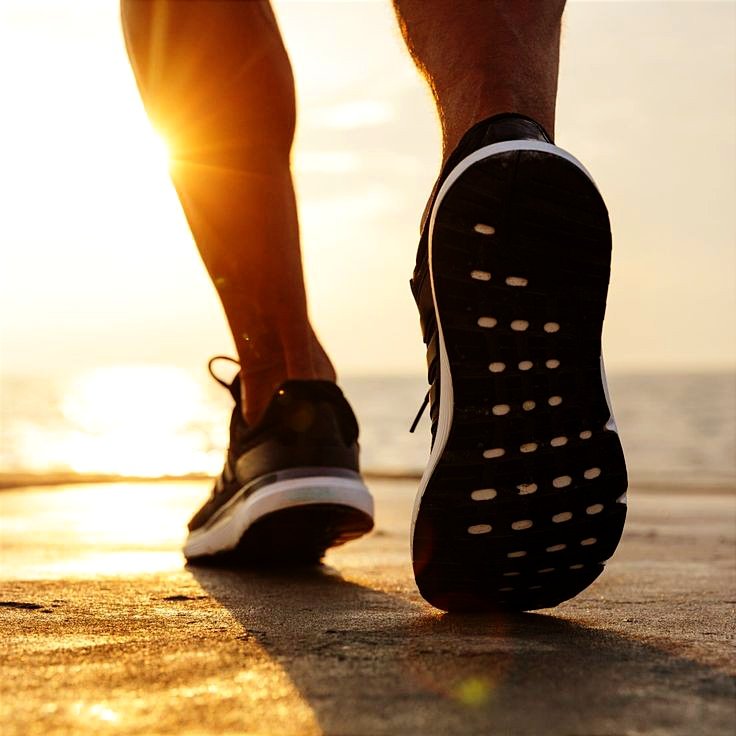Heat wave and Heart problems: What’s the connection?
Raising the temperature makes the body work harder to keep the internal temperature constant which increases blood pressure and heart rate. Particularly in those with pre-existing heart problems or risk factors like obesity, diabetes, or hypertension, this puts additional strain on the heart. During heatwaves, the health risks increase with rising temperatures, particularly for those who are more sensitive. Among the various issues, the effect of extreme temperatures on heart health is one that is commonly ignored. Heatwaves and a higher risk of heart problems have a strong connection, according to research, therefore it’s critical to understand the processes at work and take steps to protect your heart.
Furthermore, continued heat waves may cause dehydration, an illness that increases the blood and reduces blood circulation, making it more difficult for the heart to pump. The combination of variables dramatically raises the risk of cardiac problems, such as heart attacks, strokes, and heart failure, especially in older persons and people with poor immune systems.
Heart Attack Systomps Chart
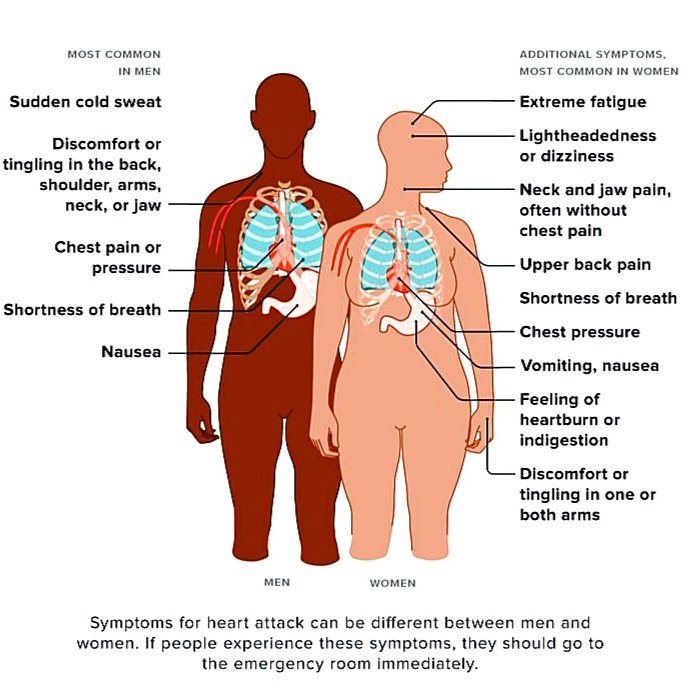
How to manage heart health in extreme heat
Although heatwaves can be harmful to heart health, there are proactive measures people can take to reduce risks and stay well during extremely hot weather:
Stay hydrated
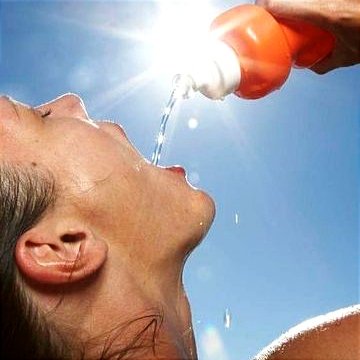
To keep your blood circulation at its best and to stay hydrated, drink lots of water throughout the day. Avoid excessive sugar consumption or highly caffeinated drinks as these might cause dehydhttps://bloggervk.com/health/the-importance-of-world-water-day-2024ration.
Eat well

Keep your diet well-balanced and full of whole grains, fruits, and vegetables—these foods are rich in nutrients and promote heart health. Avoid oily foods as they may make heat-related discomfort.
Keep cool
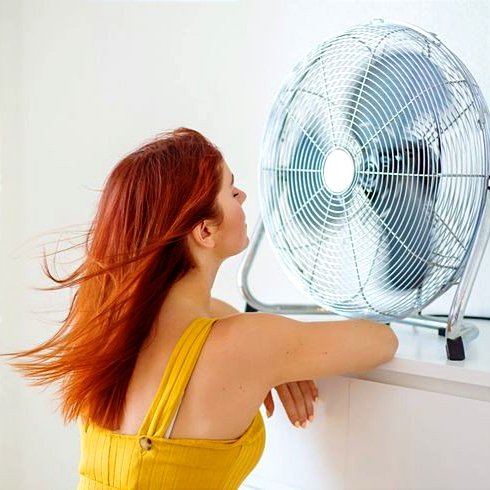
During the hottest parts of the day, find shade across air conditioning spaces, especially if you are more susceptible to heart issues. To reduce body temperature and reduce heart stress, use fans or cold showers.
Limit outdoor activities
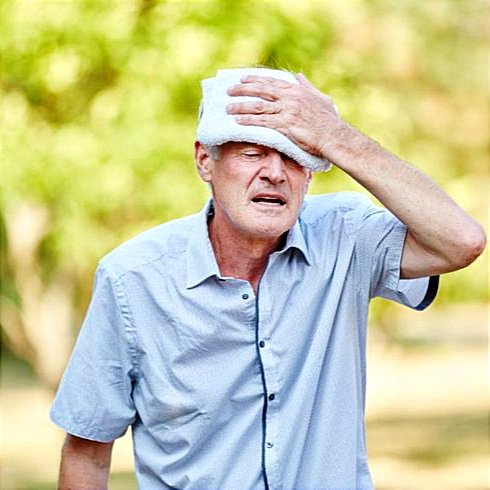
To minimize the risk of extreme temperatures, schedule outside activities to the early morning or late evening hours of the day. Choose indoor workouts over difficult exercise although it’s warm outside.
Check symptoms
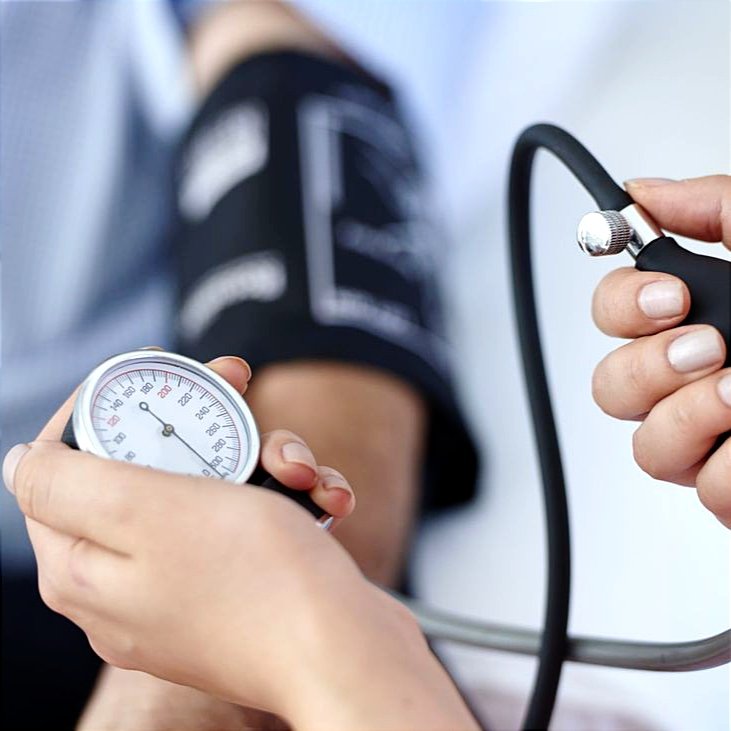
A fast heartbeat, nausea, dizziness, or chest pain are all indicators of a heat-related sickness. Get medical help as soon as possible if you have any alarming symptoms.
Choose suitable clothes

For best transpiration of heat to prevent overheating, choose loose-fitting, lightweight clothing made of breathable materials. Put on sunscreen and a hat with broad to shield yourself from the harmful rays of the sun.
Monitor your medication

Speak with your doctor about any drugs you are taking, as some may make you more sensitive to heat or increase heart-related conditions. Take the recommended precautions and carefully follow the dose directions.
Keep yourself updated
Plan your activities based on local heat advisories and weather forecasts, and stay informed. Identify local cooling centers or other facilities in your area that may help reduce the effects of excessive heat.
What to do if feeling uneasy in the heat?
These are four quick ways to feel better if you are feeling uneasy in the heat:
- Move to a cool place
- Lie down and raise your feet slightly
- Drink plenty of water
cool your skin : Spray or sponge with cool water and fan yourself. Ask someone else to do this for you if that’s an option for you. Cold packs or ice packs around the armpits or neck are good too.
Who is most at risk?
Extreme temperatures can be particularly dangerous for the elderly and very young children since they have more trouble controlling their body temperature.
people who have long term medical diseases, such as diabetes, Parkinson’s disease, lung disorders, kidney issues, heart or circulation difficulties, and lung problems.
Those who are sick, disabled, suffering from brain disease, or who work outside may find it more difficult to adjust their behavior.
More information and support
As per World Health Organization many people’s health is impacted by high temperatures each year, especially the elderly, young children, outdoor workers, and those with chronic illnesses. Heat can exacerbate pre-existing medical illnesses, such as mental disorders, respiratory, kidney, and cardiovascular ailments, as well as cause exhaustion and heat stroke. Good public health practices can mainly prevent the negative health effects of hot weather.
Read our informative blog : Stay Cool and Beat the Heat of Summer
Contact Heart Helpline number provided by justdial for support and advice

